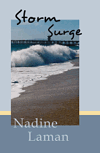The question of writing in dialect, particularly when it involves phonetic spellings, is usually answered emphatically, "NO! Don't do it."
Strictly following EVERY rule of writing [of course], I gave the parade lady (in my trilogy) the voice of a street version of a southern black Appalachian woman. As with most things in literary fiction that was an enigma. Later the reader understands who that woman really is and her message (role) in the story.
I've seen dialect done extremely well by Jewell Parker Rhodes in her Douglass' Women. She did a reading (by memory) that totally silenced the room. I would dare anyone to tell Jewell not to write in dialect. She did it masterfully.
Historically, the grand master of dialect is Mark Twain. Recently there was the [misguided] notion to sanitize Mark Twain's writing and remove the offensive N-word [and a bit more].
Strictly following EVERY rule of writing [of course], I gave the parade lady (in my trilogy) the voice of a street version of a southern black Appalachian woman. As with most things in literary fiction that was an enigma. Later the reader understands who that woman really is and her message (role) in the story.
I've seen dialect done extremely well by Jewell Parker Rhodes in her Douglass' Women. She did a reading (by memory) that totally silenced the room. I would dare anyone to tell Jewell not to write in dialect. She did it masterfully.
Historically, the grand master of dialect is Mark Twain. Recently there was the [misguided] notion to sanitize Mark Twain's writing and remove the offensive N-word [and a bit more].
Having heard several stage productions (by Hal Holbrook) of Mr Clemens' essays, I'd doubt he would go along with such a project. He didn't treat any subject delicately, and his writing would not be immune from his brisk no-nonsense opinions either.
Substitute "damn" every time you're inclined to write "very"; your editor will delete it and the writing will be just as it should be. Mark Twain
"Fixing" Mark Twain's writing would make as much sense as "fixing" Shakespear. (Who comes up with these ideas?)
Like anything in fiction writing, dialect has to be a justifiable part of the story. And, it has to be done extremely well.
Catch this link, it is what started me thinking on this topic: http://www.dailyrecord.co.uk/news/scottish-news/2011/02/20/fans-love-scots-writer-s-e-book-but-can-t-understand-slang-86908-22937251

 When Paul Fenton stops for breakfast in a small town, he gets more than he bargained for in the process.
When Paul Fenton stops for breakfast in a small town, he gets more than he bargained for in the process.
 When two-hundred-year-old human remains are discovered on one of Neptune's moons, Earth's history falls into question.
When two-hundred-year-old human remains are discovered on one of Neptune's moons, Earth's history falls into question.
 Emily's husband persuades her to try thalidomide to ease her symptoms as she is unaware of the devastating effects.
Emily's husband persuades her to try thalidomide to ease her symptoms as she is unaware of the devastating effects.
 Who is the women's shelter bomber? Melissa Ryan suspects that her husband knows.
Who is the women's shelter bomber? Melissa Ryan suspects that her husband knows.
 Further developments with the Wilder family.
Further developments with the Wilder family.
 A hidden past shakes the O'Donovan family to its core
A hidden past shakes the O'Donovan family to its core
 A swirl of emotion and choice, set in Cape Town, South Africa
A swirl of emotion and choice, set in Cape Town, South Africa
 Love is a constant, but it comes at a price.
Love is a constant, but it comes at a price.
 When the road ahead is unclear, sometimes you have to rely on trust.
When the road ahead is unclear, sometimes you have to rely on trust.
 The struggle between good and evil is ages old. It gets all the more complicated when the good guys aren't all good and the bad guys have redeeming qualities.
The struggle between good and evil is ages old. It gets all the more complicated when the good guys aren't all good and the bad guys have redeeming qualities.
 Story of a land mothering two races of people – the light-skinned and the dark-skinned.
Story of a land mothering two races of people – the light-skinned and the dark-skinned.
 A gifted Ukrainian ballerina comes into possession of a mysteriously coded address book.
A gifted Ukrainian ballerina comes into possession of a mysteriously coded address book.
 Six passengers' lives change for better or worse after they arrive in Honiton.
Six passengers' lives change for better or worse after they arrive in Honiton.
 Resilience and love in a harsh and unforgiving age
Resilience and love in a harsh and unforgiving age
 Kathryn's Beach
Kathryn's Beach High Tide
High Tide Storm Surge
Storm Surge
I use a little cockney dialect in my work. I use it to show a class rift.
ReplyDeleteWe all have different modes of speech - sometimes it's dialect, sometimes it's the way we use language. To remove this from our writing would be criminal. However, to write entirely in something that people cannot associate with may be dangerous.Good post Nadine.
ReplyDeleteMore than anything, I wanted to point out that when we do something in a novel, we need to understand why it fits and is important. By doing that, the reader will not think twice about it because it fits and is important.
ReplyDeleteHello new followers, and welcome. Let me invite you to post comments. They are not edited or whatever -- and I've only had to remove one (because it wasn't in English and I didn't know what it said). You are welcome to disagree with me or add another point of view. The only thing I expect is that all comments to each other be respect-filled.
ReplyDelete